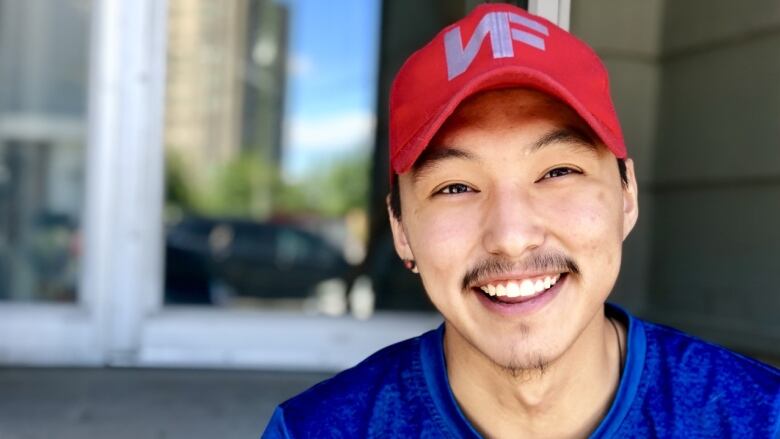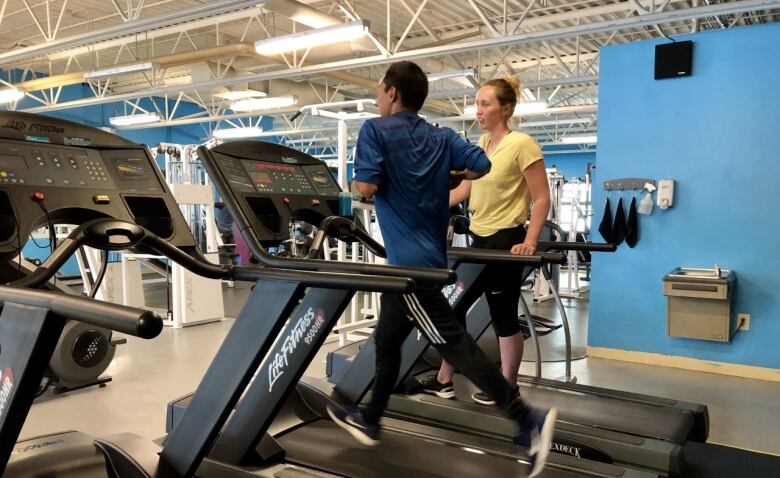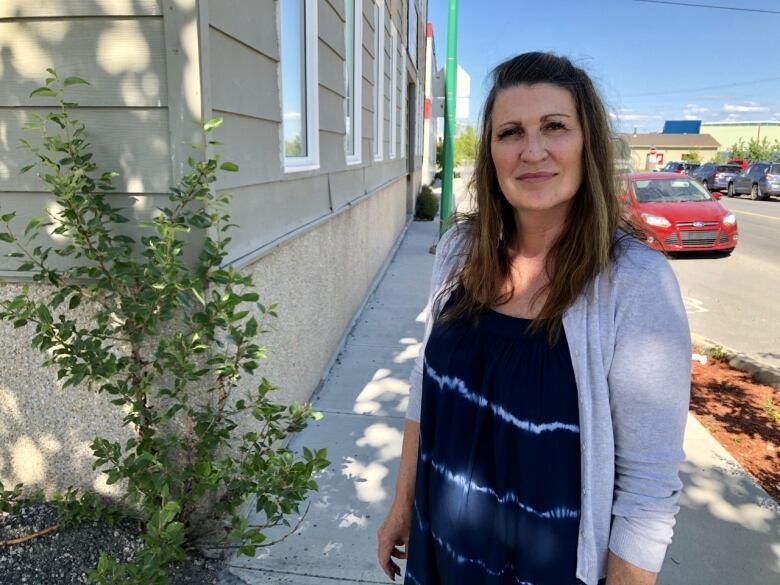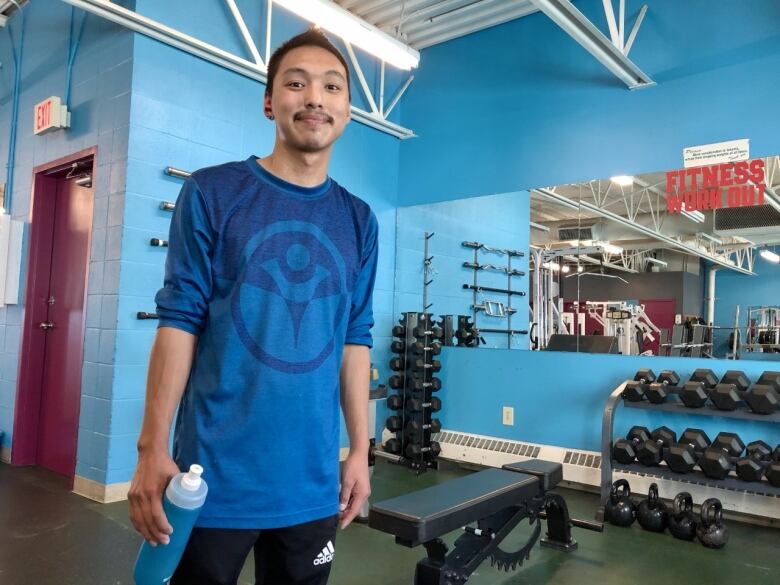'You're not alone': New program helps foster kids with FASD prepare for life on their own
'They just need the support from those of us who don't have a disability so they can shine'

Jordan's heart pounds as his feet hit the treadmill at a gym in downtown Yellowknife. Rap music ringsfrom his ear buds.
Korry Garvey stands beside him guiding Jordanthrough a new workout routine.They've paired up as part of a new pilot project that helps support young people with fetal alcohol spectrum disorder(FASD) who are aging out of the child welfare system. It pairsyouthwith a navigator, like Garvey,to learn life skills and build support networks.
"I turned 19, that's when the adult life comes in," said Jordan recounting his birthday in April, the day he left foster care. He still lives with his former foster family buthe's looking for more independence.
Jordan, who requested that CBC not use his last name, has someshort-term memory loss from FASD,a disability resulting from exposure to alcohol when he was in the womb. Learning new things can also be tough for him.
"I wanted to be in the program because I can learn new skills and to learn how to live on my own," he said.

The Foster Family Coalition of the NWTcreated the pilot4Y Program after identifying a gap in services, specifically for young people with FASD who are transitioning out of foster care. That typically happens at 19, though teens can apply for extended serviceswith their foster families until age 23.
"There's quite a lot of good support in schools when individuals are children or youth, but once they've started turning 19 or 20, and then go through their 20s, there's not really a lot in place," said Garvey, who is also a program co-ordinator.
She says not all young people with FASD have people they can count on to help them transition out of foster care, and beyond. That's where the navigator comes in.
They spend four hours a weekproviding one-on-one support to young adults.
"We don't just work with a participant, we also work with their entire network," said Garvey. That work includeseverything from managing money, to building resumsandsecuring housing.
[People]with complex needs have complex transitions and tend to have access to fewer resources as they age.- Tracey Pope, Managerof Disabilities Services, Dept. Health and Social Services
The N.W.T. offers 37 programs for people with disabilities through governmentdepartments, agencies and other partners, including the YellowknifeAssociation forCommunity Living.
It's hard to get a clear picture of how many people have FASD in the Northwest Territories. National statistics estimate 4 per cent of people in Canada have the disability. The territory has only been diagnosing children with FASD and tracking them since around 2010.
People with FASD are at higher risk ofbeing victimsof violence, experiencing homelessness, and being involved in the justice system, according to the Canada FASD Research Network.
Complex needs, complex transitions
Since 2010, a specialized FASD diagnostic team in the N.W.T.,including social workers, pediatricians and psychologists,has diagnosed roughly 10 children a year. The team provides tailored support plans for children between ages eight and 16 for useat home, at school and in their communities.
The N.W.T. government says it does not currently have FASD-specific services outside this program.
A review in 2016by the territorial government and non-profitsfound people with complex needs tend to have access to fewer resources as they age,said Tracey Pope, manager of disability services for the Department of Health and Social Services.

"Youth with disabilities transitioning into adulthood often fall through the cracks in health and social services," she said in an email.
But the territory says it does prepare plans for every youth in the permanent care of Child and Family Services.
That planning begins before the child's 16th birthday, and includes assessing the young person's needs and developing a support team. The child, members of their extended family, Indigenous group (if they are Indigenous) and others can help develop and execute the plan, said the Department ofHealth and Social Services.
The territory is currently developing an FASD diagnostic and support program for adults. That's expected to begin this fall. It also launched a pilot support workers project in Behchoko to help adults with disabilities, including those with FASD,maintain stable housing.
I just hope that there's a bright future ahead of me.- Jordan
Tammy Roberts,the executive director of the Foster Family Coalition of the NWT,sees the difference support can make for young people with FASD. She's personally fostered more than 250 children in the territory.
"They're always going to need some sort of support," said Roberts. "They just need the support from those of us who don't have a disability so they shine."
'You're not alone'
In an office at the Foster Family Coalition, Garvey and Jordan practisecreating a budget, and talk about how Jordan should spend his paychequefrom working at Walmart.
"She's giving me new skills to learn. Making me push myself with a lot of things," he said. "It's really nice to have her support."
Next year Jordan plans to study music at college in Alberta, hopefully living on his own. He wants to become a music teacher and learn to play the piano.
"I just hope that there's a bright future ahead of me," he said,along with this message for other young people with FASD who are in transition.
"You're not alone."













_(720p).jpg)


 OFFICIAL HD MUSIC VIDEO.jpg)
.jpg)



























































































